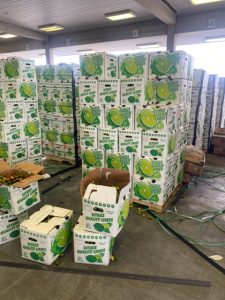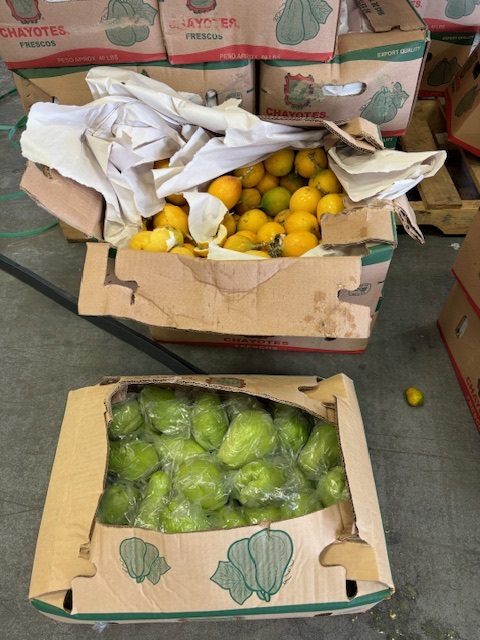|
Only have a minute? Listen instead
Getting your Trinity Audio player ready...
|

U.S. Customs and Border Protection officers intercepted nearly 15,000 pounds of fresh hog plum and passion fruit at the Pharr International Bridge cargo facility, the agency said on Friday.
Fresh hog plums and fresh passion fruit are strictly prohibited from entry to the country as those fruits can harbor pests like fruit flies that can devastate American agriculture, a news release stated.
“Our mission to safeguard American agriculture is just as important as intercepting narcotics. Keeping prohibited pests and diseases from damaging American agriculture helps keeps the costs of goods down,” Port Director Carlos Rodriguez said in the release.
CBP officers at the Pharr International Bridge cargo facility encountered a tractor-trailer arriving from Mexico on Oct. 20, with the release adding the shipment was “manifested as fresh lime and chayote.”

An officer referred the vehicle for further inspection utilizing non-intrusive inspection equipment and screening by a canine team, which revealed the shipment had paper-wrapped produce in enclosed boxed with fresh fruit that didn’t match what was manifested, the release stated.
As a result, the shipment was held so CBP agriculture specialists could submit samples to the U.S. Department of Agriculture, or USDA, for identification, which identified the samples as fresh hog plum and fresh passion fruit the following day.
The release went on to say that CBP seized a total of 14,745 pounds of the fresh fruit for destruction, with the carrier assessed a $5,000 penalty for unmanifested produce.



